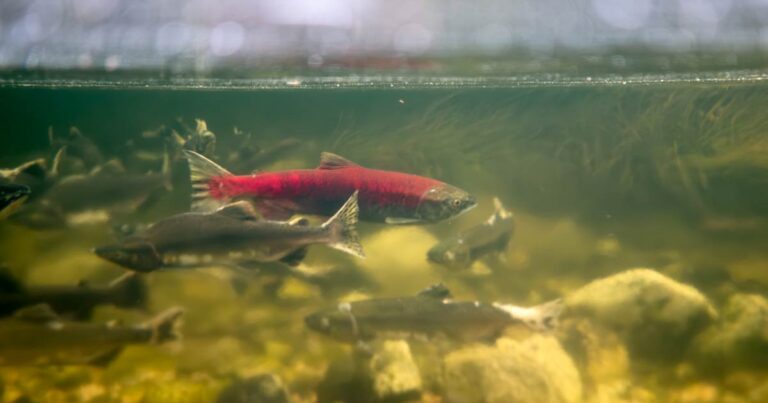Twenty years in, Government of Canada still failing to implement Wild Salmon Policy, researchers warn
New study finds that twenty years later, the Wild Salmon Policy’s promise to safeguard Canada’s wild Pacific salmon remains largely unfulfilled.
Press releases by Raincoast Conservation Foundation.
Get more information, subscribe to our press releases, or arrange an interview.

New study finds that twenty years later, the Wild Salmon Policy’s promise to safeguard Canada’s wild Pacific salmon remains largely unfulfilled.

A community-driven forestry model offers a pathway to wildfire resilience and watershed security under a changing climate.

Metro Vancouver, the City of Vancouver, False Creek Friends Society, and Raincoast Conservation Foundation are working together on a project to better understand water quality conditions in False Creek and help guide future pollution reduction efforts. “False Creek is at the heart of the city in an area that is extremely well used by the public, so it just makes…

Conservation groups demand urgent action from Ottawa to address “unprecedented management failure.”

Although differences in some beliefs and management priorities were stark, the research revealed that many individuals held both angler and conservationist identities, and shared similar beliefs regarding the importance of SRKWs and Chinook salmon.

New research highlights important routes to spawning salmon for coastal bears.

Independent science panel calls for urgent and bold action to aid in the recovery of endangered Southern Resident killer whales.

New research highlights the threat of climate change to the Nicola and the importance of streamflows to salmon.

Cocaine, DEET, and sucralose among the surprising pollutants found in Grafton Lake – the drinking water source for half the island’s 4,000 residents.

Conservation groups are warning that the federal government’s decision not to issue an emergency order to protect southern resident killer whales has put this iconic and critically endangered population at greater risk of extinction.

The longer the Southern Residents wait for bold action, the greater the risk of extinction.

A new study, “Grizzly bears detected at ecotourism sites are less likely than predicted by chance to encounter conflict” (Open Access freely available, article here) released today in the journal, Canadian Journal of Zoology, finds that grizzly bears that were exposed to ecotourism at spawning salmon sites in a protected area were less likely than chance to be involved in…